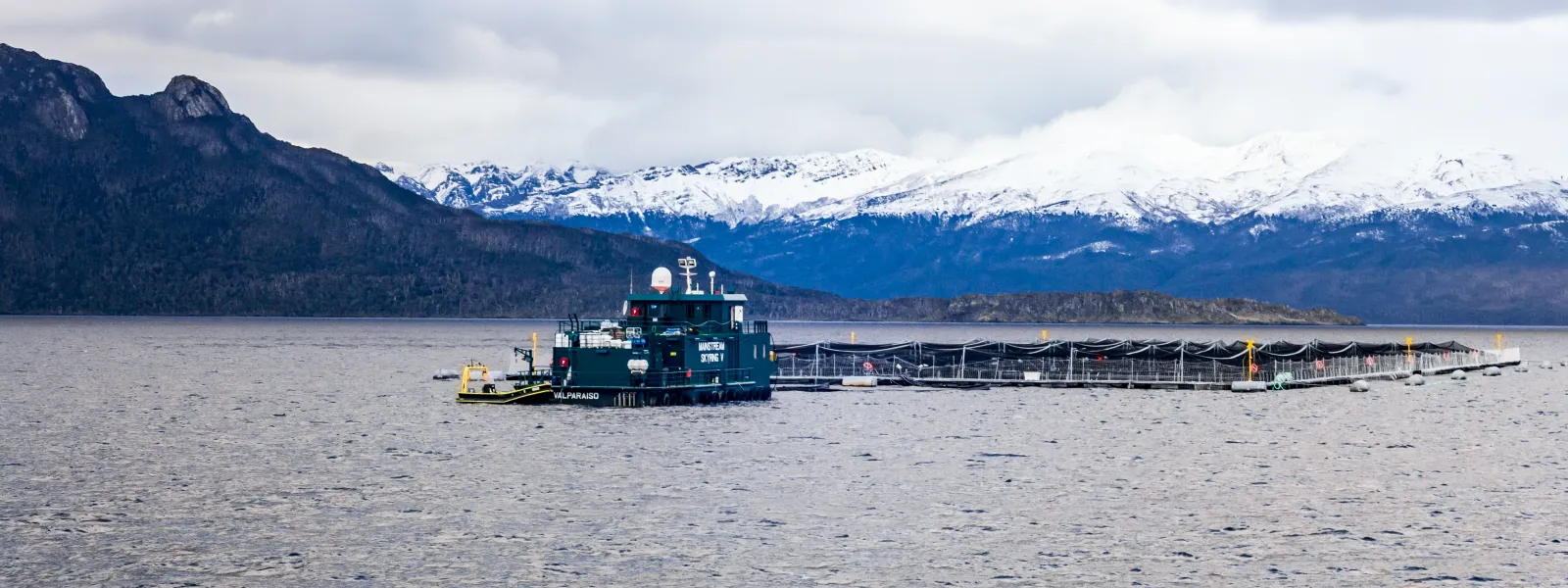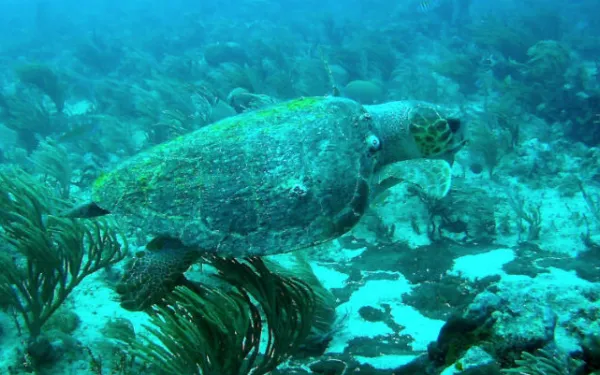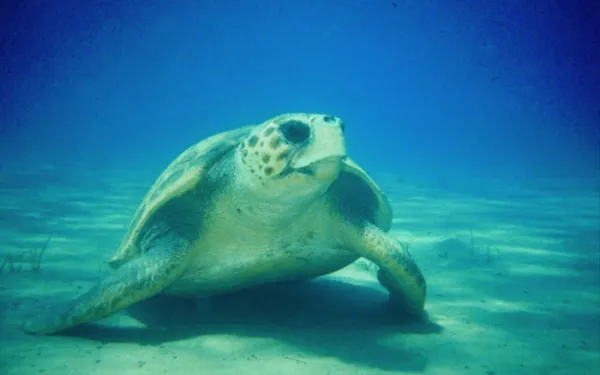
Project
Photo: #RealChileProtecting Patagonian Seas from Salmon Farms
The Straight of Magellan in Chilean Patagonia (or Magallanes, as it’s known in Spanish) hosts the largest number of natural protected areas in the country. Permanent snow feeds the idyllic landscape, which has been shaped by glaciers, lakes, rivers and seas. Within its bounds live protected species—blue whales, sperm whales, Magellanic penguins, elephant seals, leatherback turtles, and southern and Chilean dolphins.
The cold waters of this far corner of the world are pristine; this makes them more sensitive to high-impact human activities. And now they’re being stressed by the arrival of salmon farms, which have already caused severe environmental damage in regions further north.
In Chile, the salmon industry uses harmful techniques and operates without proper regulation. Its rapid growth has overwhelmed coastal waters, filling them with huge amounts of antibiotics, chemicals, and salmon feces. These pollutants have led to partial or, in some places, complete lack of oxygen in the water, threating all forms of marine life.
Large salmon farms in the Magallanes region are already causing big damage. According to a government audit, more than half of the salmon farms operating there are affecting the availability of oxygen in the water, a condition that did not occur prior to their arrival.
Partners:

Related projects

Progress on Protecting the Loggerhead Turtle!
By Gladys Martínez Significant strides were taken last week toward the conservation of loggerhead sea turtles. A new international resolution intends to strengthen protections for this endangered species in the Americas, and outlines the primary threats facing loggerheads, including mining, all of which should be regulated to avoid harm. The resolution was approved during the 7th Conference of Parties to the Inter-American Convention for the Protection and Conservation of Sea Turtles (CIT), hosted last week in Mexico City. One of just seven species of sea turtle in the world, the loggerhead turtle is threatened by human activities such as unsustainable fishing, poorly planned development and extractive industries. AIDA was an actor and an observer in the conference, representing other organizations and individuals from civil society. My colleagues and I spoke with delegates and raised awareness of the harm that marine phosphate mining could cause to loggerheads, and to the ecosystem as a whole. We drew attention to the potential impacts of the Don Diego mining project in Bahia de Ulloa, Baja California Sur. The region’s first marine phosphate mine would, if executed, gravely impact populations of loggerhead turtles and other species that live in or migrate through Baja waters. I am pleased to report that I successfully advocated for the resolution to include mining on the list of threats to loggerheads. We also used our knowledge of international environmental law to help strengthen proposals within the resolution, and to make member States aware that immediate action is required for the conservation of the species. Details of the Loggerhead Resolution In the resolution, member States recognize that threats to the loggerhead turtle include development, coastal and deep-water fishing, marine debris, mining, pollution and climate change. The nations promise to work together to implement existing recovery plans for loggerhead populations, as well as to develop new plans in countries that still have not created them. They made the following commitments: Mexico and the United States will work together with Japan to develop a Trinational Recovery Plan for loggerhead turtles in the North Pacific. Chile, Ecuador, Peru and the United States will work with the Secretariat Pro Tempore of the Sea Turtle Convention and the Secretariat of the Convention on Migratory Species to implement a Species Action Plan for loggerhead turtles in the South Pacific. Mexico and the United States will continue working with collaborating countries of the North Atlantic to share information about the situation and tendencies of the loggerhead turtle of the Northeast Atlantic, and to identify collaborative conservation actions. A Report on the Conference Overall, I am quite satisfied with the advances achieved at this conference. I consider it a privilege to participate, and an honor to effectively contribute our knowledge and experience to conventions such as this, where decisions are made at an international level, and then taken back and implemented in each participating country. Another result of the Conference is the increased protection of the leatherback turtle (Dermochelys coriacea) of the Western Pacific. Member States approved a resolution in which they committed to: Deliver information annually to the Secretariat of the Convention on leatherback turtle bycatch taken by their fleets. Annually inform the Secretariat of measures that are being adopted to reduce bycatch. Identify, with the help of the Scientific Committee, critical areas and fisheries that require spatial and temporal management to reduce bycatch. Strengthen actions for the protection of leatherback turtles eggs. Establish and evaluate national programs for handling and releasing leatherback turtles taken as bycatch in fisheries. We trust that the States will transform these international commitments into effective actions for the conservation of sea turtles. At AIDA, we will remain vigilant to ensure these promises become reality.
Read moreEnvironmental organizations condemn attacks on the environment in Colombia
Bogota, Colombia. The undersigned environmental organizations condemn attacks on the environment made in the Colombian departments of Putumayo, Nariño, Arauca, Boyacá and Norte de Santander, which have been attributed to FARC-EP. According to media sources, attacks on oil infrastructure have caused environmental damage in the river basins of Tibú and Caunapí, among others, and in Bahia de Tumaco, affecting more than 84,000 people. These acts adversely impact local communities, the country and the environment on a global scale. Oil pollution in bodies of water seriously threatens the life and health of people, as well as the integrity of ecosystems and animal species. The undersigned organizations recall that international humanitarian law prohibits actors of armed conflict from engaging in environmental destruction unjustified by military needs, according to the principles of distinction and proportionality. Similarly, actors of armed conflict, when conducting hostilities, should refrain from undermining the human rights to water and a healthy environment. The organizations reaffirm that human rights and environmental law applicable in Colombia, as well as the government’s obligations in the field, are not suspended during periods of armed conflict. For all of these reasons, the undersigned environmental organizations call on FARC-EP to respect international humanitarian law and refrain from causing harm to the environment. They also reaffirm the necessity to exclude communities and ecosystems from armed conflict. Asociación Ambiente y Sociedad Asociación Interamericana para la Defensa del Ambiente (AIDA) Foro Nacional Ambiental Fundación Natura Klimaforum Latinoamérica Network (KLN) Red por la Justicia Ambiental en Colombia (RJAC)
Read more
Strengthening the Sea Turtle Treaty
By Gladys Martínez When baby sea turtles first break through their shells, they slowly stick their heads out into the world. Then, they run as fast as they can to the vast body of salt water before them, where they will spend their lives. Sea turtles are migratory creatures that swim in the oceans, and nest on the beaches, of many different countries. Their survival is at risk from the impacts of human activity, such as unsustainable fishing, poorly planned development, and mining projects in marine and coastal areas. In an effort to confront these threats, the Inter-American Convention for the Protection and Conservation of Sea Turtles was created in 2001. The international treaty promotes the protection, conservation and recovery of sea turtle populations. From June 24 to 26 in Mexico City, representatives from member States will discuss achievements and plan for the future of the Convention during the 7th Conference of Parties. AIDA will be there advocating for the States to continue meeting their obligations and making new commitments. Fifteen Contracting Parties have signed the Convention: Argentina, Belize, Brazil, Chile, Costa Rica, Ecuador, Honduras, Mexico, Nicaragua, Netherlands (Antilles), Panama, Peru, Uruguay, Venezuela and the United States. Thirty-two accredited observers, including academic institutions and NGOs, may participate in meetings of Scientific and Consultative committees of experts. The 7th Conference of the Parties will focus on adopting three key resolutions, on: The conservation of leatherback sea turtles (Dermochelys Coriacea) in the Pacific Ocean. The conservation of loggerhead sea turtles (Caretta Caretta). Exceptions to the subsistence harvest of olive ridley turtle eggs in Costa Rica. The Conference will also review the States’ compliance with regards to their annual reports, present the Secretariat’s work plan, and elect a new President, Vice President and Rapporteur. AIDA will seek for the States to: Commit to avoiding threats to turtle nesting habitats by mining projects. Continue restricting and prohibiting developments that affect sea turtle migration routes. Strengthen measures for responsible fishing and bycatch (sea turtles are captured and killed incidentally by fishermen targeting other species). We will concentrate our outreach efforts on creating awareness and promoting measures to curb the risks that the Don Diego marine mining project will have on the loggerhead turtle and Mexico’s marine ecosystem. AIDA has worked since 1998 to protect sea turtles. First we advocated the Convention’s ratification. A campaign organized by AIDA and other sea turtle advocates helped secure the signatures necessary to continue the negotiation process, and, in 2011, for the Convention to enter into force. We have advocated before Courts and decision-makers for the protection of sea turtles in several countries of Latin America, basing our advocacy on the obligations assumed by States under the Convention. Using this strategy, we have protected the green turtle from illegal poaching on Costa Rica’s Atlantic coast, avoided loss of nesting habitat of the leatherback turtle, and guaranteed that hawksbill and olive ridley turtles continue to enjoy one of their favorite coral reefs, Coiba National Park in Panama. Follow us on Facebook and Twitter to learn more about the 7th Conference of Parties of the international treaty to protect sea turtles!
Read more